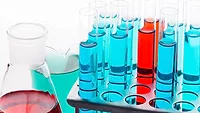EFSA Updates Guidance for Novel Food Applications

Image credit: rawpixel via Freepik
The European Food Safety Authority (EFSA) has published new guidance on the submission of novel food applications, which will come into effect in February 2025. The guidance applies to all novel food applications, including those for cell-based foods and food ingredients.
The updated guidance reflects changes in the EU’s legal framework for novel foods, which was originally implemented in 2018, taking into account the latest advances in food research and innovation, as well as the growing variety of novel food applications EFSA has received in recent years. Updates clarify definitions and data requirements for novel food applications, especially focusing on scientific areas where EFSA has noticed gaps in the past six years.
The guidance explains how to describe and identify novel foods, along with details on the production process, composition, specifications, and proposed uses. Applicants must also provide information on the food’s expected consumption, history of use, and safety data, including how the body processes the food, toxicology, nutrition, and potential allergens. A supplemental administrative document outlines the practical steps for preparing and submitting an application.
EFSA has set a 9-month deadline to complete each risk assessment, although assessments could be paused or extended if more information is required from an applicant, and depending on the complexity and quality of the data submitted.
The European Commission and the EU national authorities handle the final approval and marketing rules for approved novel foods.
Looking for quick answers on food safety topics?
Try Ask FSM, our new smart AI search tool.
Ask FSM →









